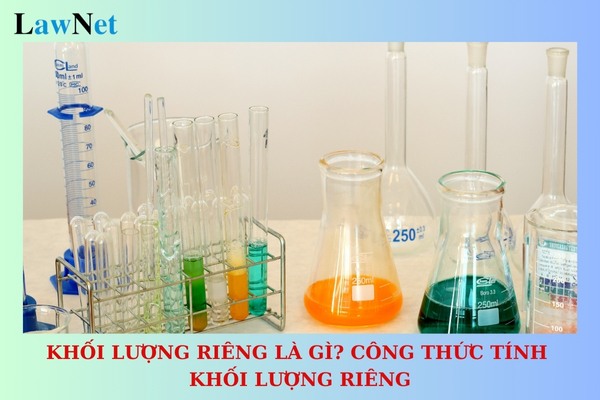What is density? What is the formula for calculating density? What are basic requirements for teaching methods for grade 10 Physics in Vietnam?
What is density? What is the formula for calculating density?
Density (also known as mass density) is a measure of the amount of mass contained within a unit volume of a substance.
Below are the formula for calculating density and the average density of a substance:
The formula for calculating density is:
D = m / V
Where:
- D is density (unit: kg/m³ or g/cm³)
- m is the mass of the object (unit: kg or g)
- V is the volume (unit: m³ or cm³).
The formula for calculating average density:
The average density of any object is calculated by dividing its mass by its volume, commonly denoted by p:
p = m / V
Where:
p: Average density (unit: kg/m³ or g/cm³)
m: Mass of the object (unit: kg or g)
V: Volume of the object (unit: m³ or cm³).
Table of density of some substances:
| Solid | Density (kg/m³) | Liquid | Density (kg/m³) |
| Lead | 11300 | Mercury | 13600 |
| Iron | 7800 | Water | 1000 |
| Aluminum | 2700 | Gasoline | 700 |
| Rock | (approx.) 2600 | Kerosene | (approx.) 800 |
| Rice | (approx.) 1200 | Cooking oil | (approx.) 800 |
| Good wood | (approx.) 800 | Alcohol | (approx.) 790 |

What is density? What is the formula for calculating density? What are basic requirements for teaching methods for grade 10 Physics in Vietnam? (Image from the Internet)
What are the educational goals for grade 10 Physics in Vietnam?
According to the provision in Section III of the General Education Program for Physics issued together with Circular 32/2018/TT-BGDDT, the educational goals for upper secondary school physics are as follows:
- Along with other subjects and educational activities, help students form and develop key qualities and competencies specified in the overall program.
- Help students develop physics competencies, as evidenced by the following:
+ Acquire essential general knowledge and skills about: physical system models; energy and waves; force and fields;
+ Apply certain scientific process skills to explore and solve problems from a physics perspective;
+ Apply certain knowledge and skills in practice, behave with nature in a way that aligns with the demands of sustainable social development and environmental protection;
+ Recognize personal abilities and strengths, orient careers and make plans for study and training to meet career orientation requirements.
What are regulations on evaluation of the educational outcome for grade 10 Physics in Vietnam?
Based on Section VII of the General Education Program for Physics issued together with Circular 32/2018/TT-BGDDT, the evaluation of educational outcomes for grade 10 Physics is as follows:
(1) General Orientation
- The goal of evaluating educational outcomes is to collect truthful, prompt, and valuable information about the level of achievement required and the progress of students; thereby guiding learning activities and adjusting teaching activities.
- The basis for evaluation in physics is the required competencies regarding general competencies and physics competencies specified in the overall program and the physics program. The evaluation subjects are the learning, training process, and student products through studying physics.
- To evaluate student competency, it is necessary to design scenarios where problems require solving, helping students demonstrate their competencies. Furthermore, it is important to identify and choose evaluation methods, tools, and criteria appropriately.
(2) Focus and Form of Evaluation
- The focus of evaluating learning outcomes in physics is the competency to recognize problems, solve problems, and practice and experimental skills, specifically recognizing core concepts about:
+ Physical system models, energy and waves, forces, and fields, and related professions in physics;
+ Experimental skills, practical skills, scientific inquiry, and applying learned concepts to explain simple physical phenomena, initially solving some practical problems, and aptly interacting with the natural environment.
- It is necessary to coordinate reasonably between teacher assessment with peer and self-assessment by students;
- Evaluation through observation of group activities inside and outside classrooms, observation of practical and experimental manipulations in physics, analysis of presentations;
- Evaluation through verbal questioning and evaluation through exercises, tests, notebooks, practical result reports, project study results, research work results, and other learning portfolios;
- Evaluation in the form of essays combined with objective tests, combining process assessment, summary assessment, regular and periodic assessments.

